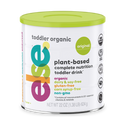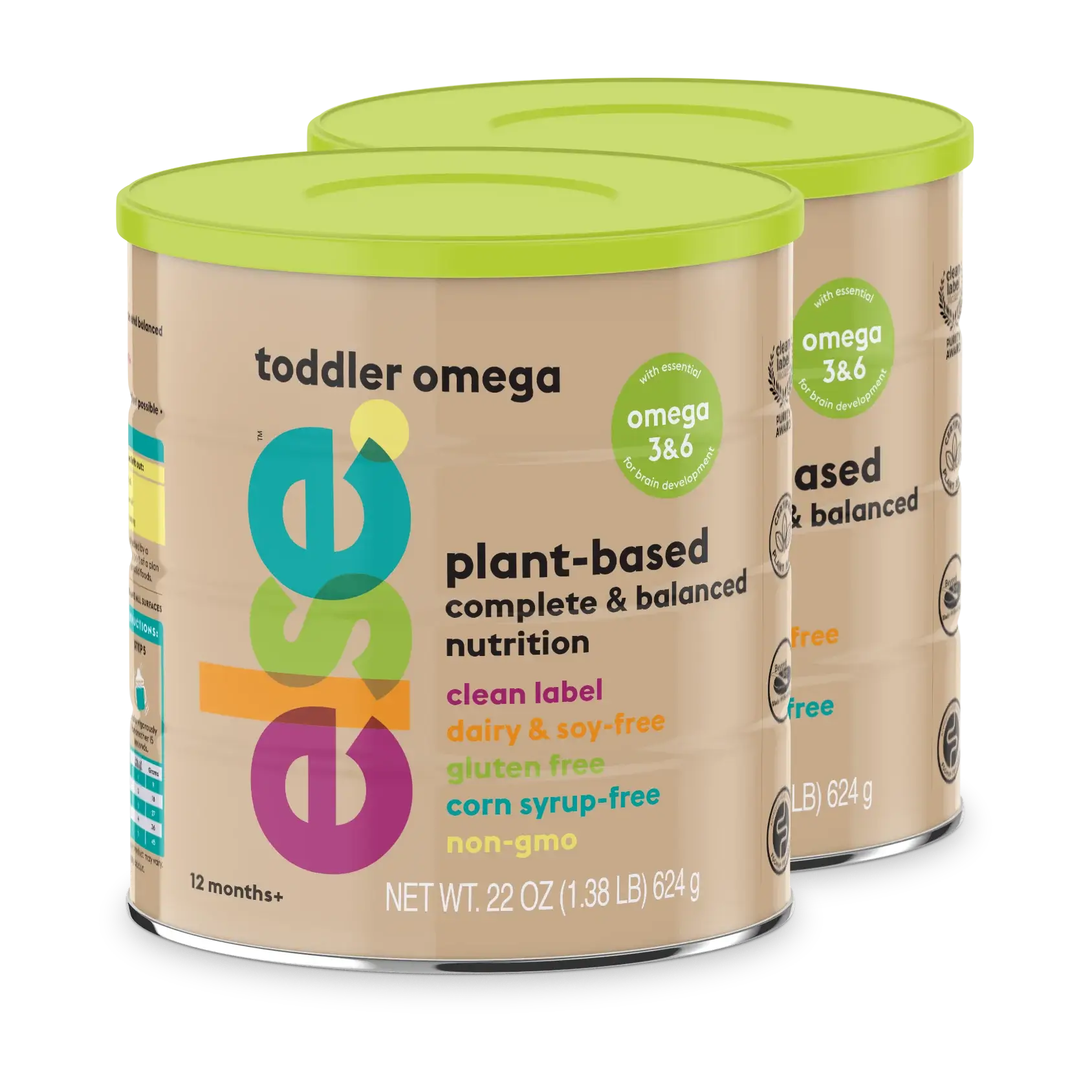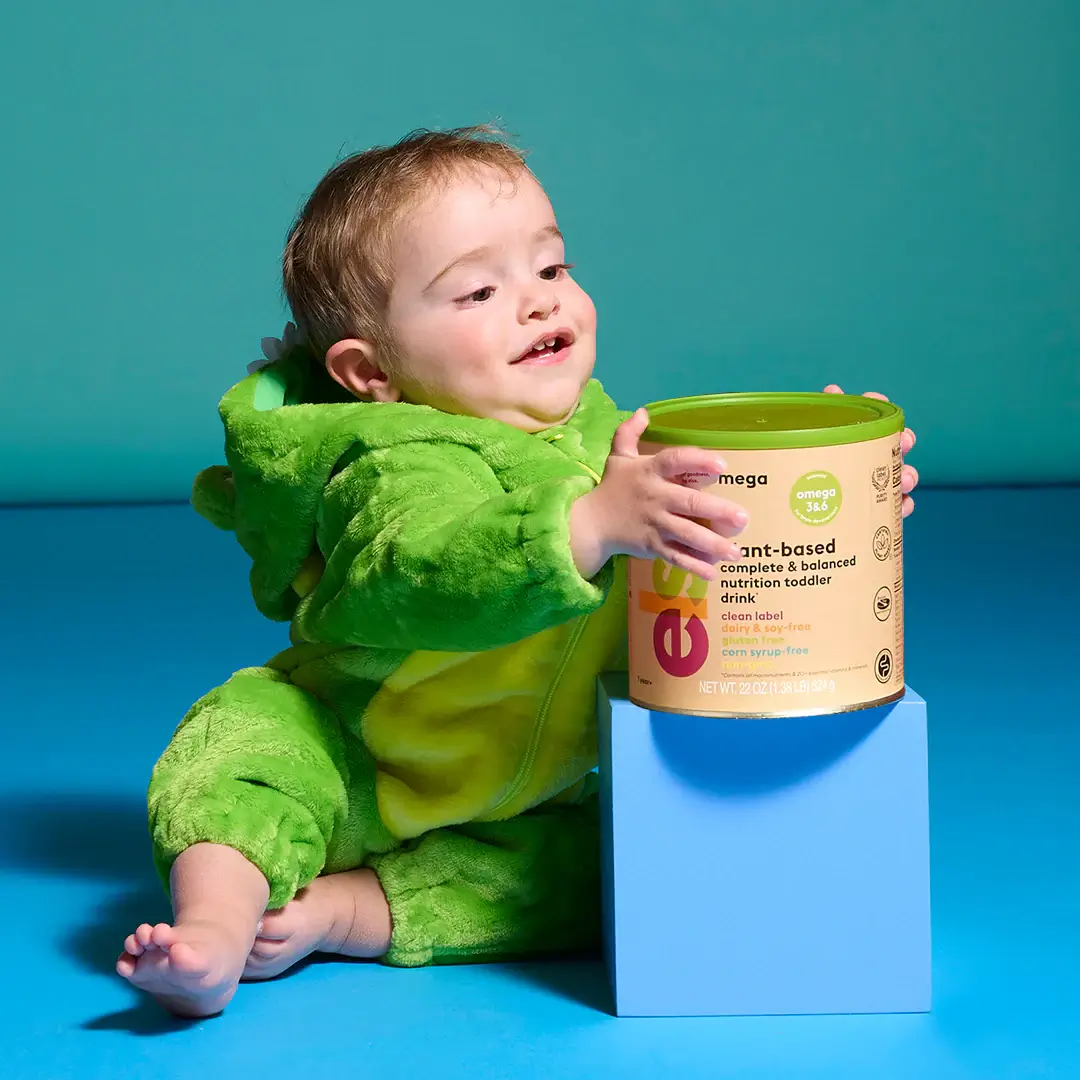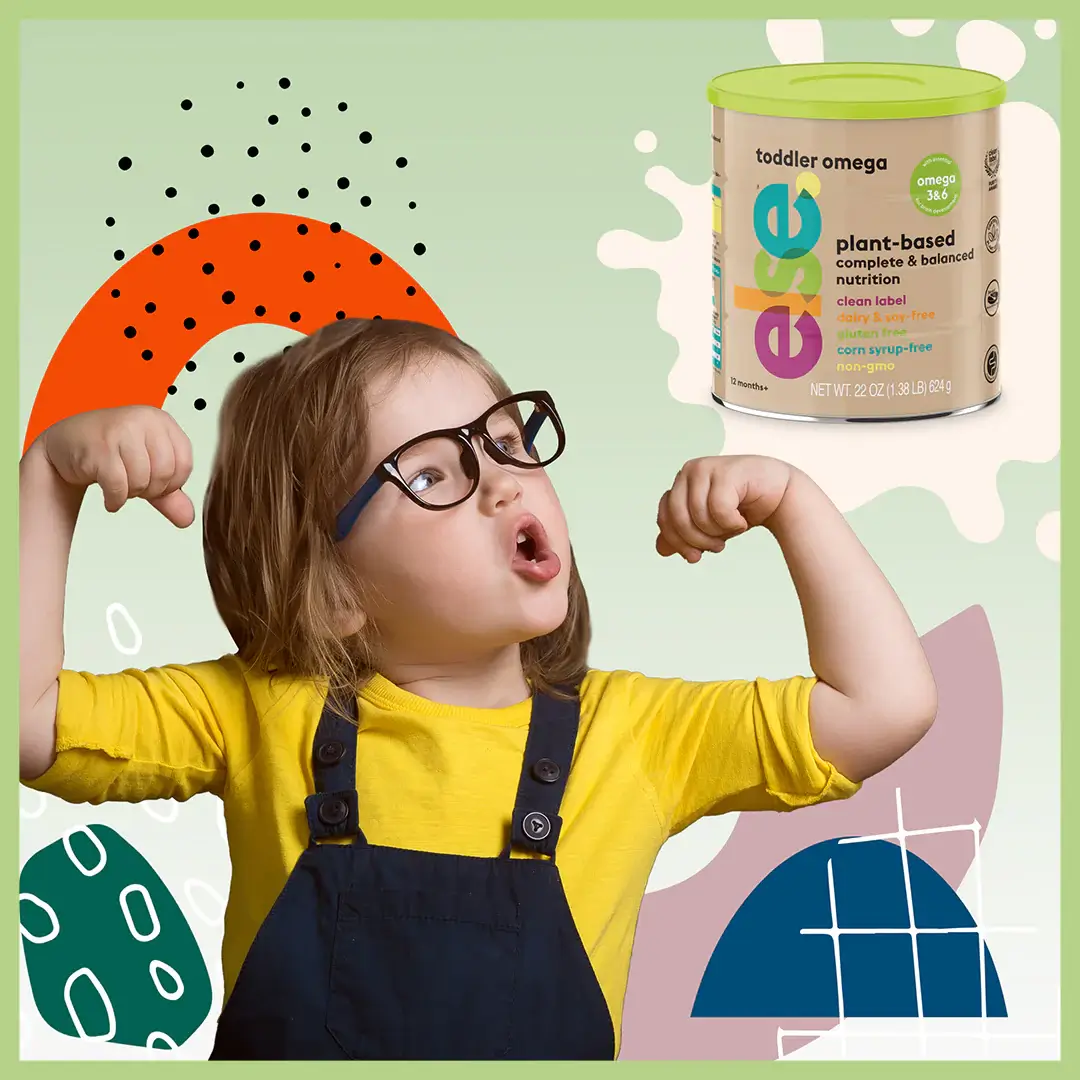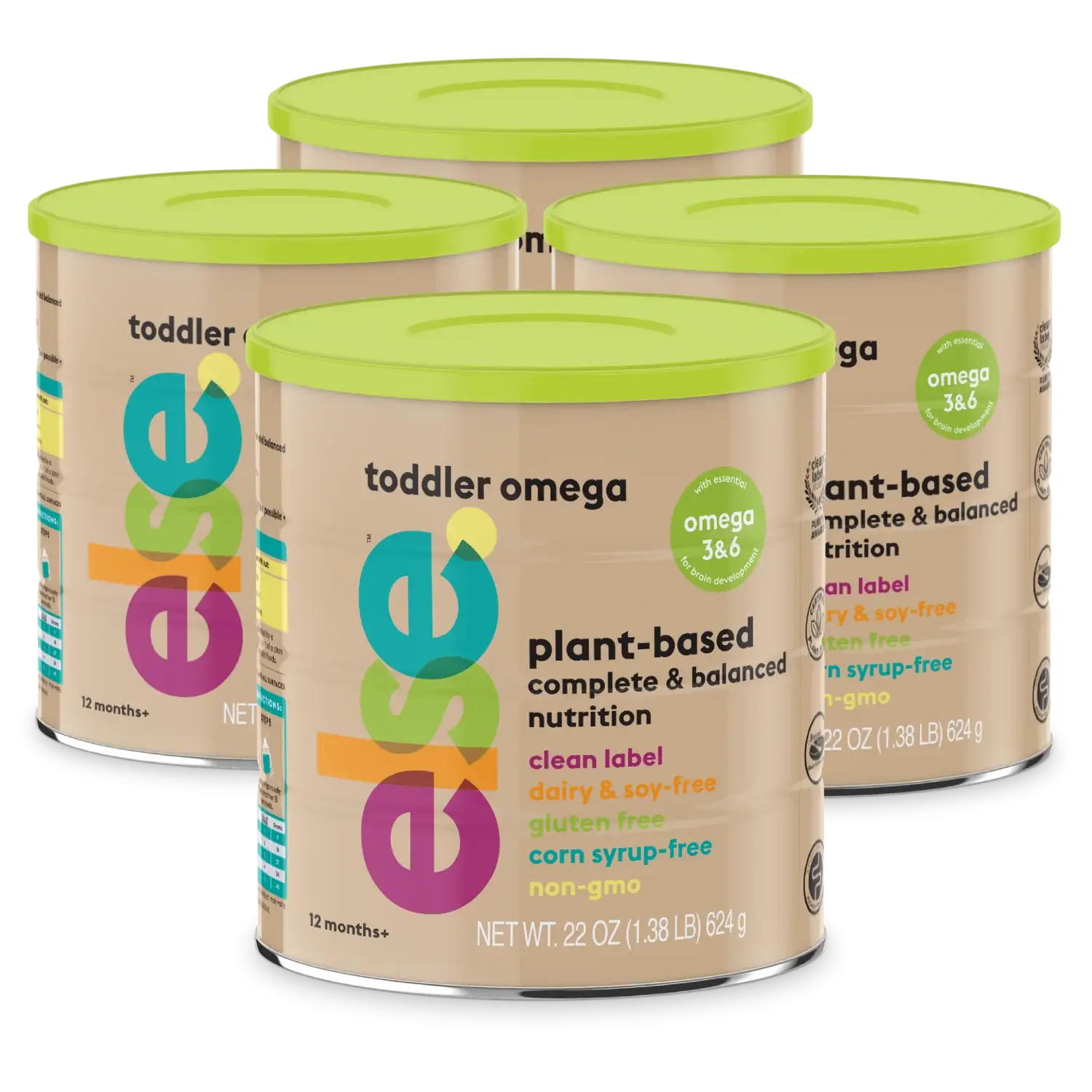5 Reasons to Opt for Soy-Free Baby Formula
Discover why you should avoid soy-based baby formula and explore the benefits of soy-free nutrition
Updated December 2, 2024

Discover why soy-based baby formula might not be the best choice for your little one's nutritional needs. To ensure your baby's health and well-being, it is recommended to avoid soy-based baby formula due to potential allergens and hormonal effects. Common signs of soy allergies and why to opt for soy-free baby formula alternatives.
Choosing to feed your child powdered formula is never an easy decision, and choosing which type of milk formula to feed them can be just as difficult, especially when there are potentially harmful side effects of popular ingredients. While we believe breastfeeding is best and safest for babies, there are a variety of reasons, both medical and personal, that make switching to powdered formula or supplementing your child’s diet with it a necessity. Thankfully, there are many formulas to choose from, so you can find the right kind for your child.
Baby formula is highly regulated by the Food and Drug Administration (FDA) to provide nutrition that is as close to breast milk as possible. It needs to provide adequate carbohydrates, protein, and fat, as well as vitamins and minerals, to support an infant’s growth. It takes special nutritionally dense ingredients to meet these requirements.
However, is soy-free formula good for babies? Let’s dive into why parents may choose a soy-free baby formula over a soy-based formula.
The best baby formulas are created with a cow’s milk protein base. However, there are other options to choose from. A popular alternative, especially for plant-based families, is soy protein-based formula.
What is a Soy-Based Baby Formula?
Soy-based baby formula is made from soybean protein and is one of the few non-dairy baby formula options available. Some infants present with an allergy to cow’s milk protein, while other families choose to avoid dairy products, so an alternative ingredient is necessary.
Soy protein has become the most popular option. Soy-based formulas now make up an entire quarter of the soy-free baby formula market.
However, choosing a baby milk formula for your child isn’t as simple as picking anything off the shelf.
» Learn more about soy allergy foods to avoid for children
Signs Your Kid's Allergic to Soy
While soy milk may be a good option for families who want to avoid cow’s milk, there are a few reasons to avoid soy baby formula:
1. Your Child's Showing Soy Allergy Symptoms
Soy is among infants' most common allergens, so feeding soy-based formula to your child should always be done with caution. You may notice the following symptoms of a soy allergy quickly after feeding your child soy milk formula:
- Flushing, hives, rash, and/or eczema
- Wheezing, coughing, and/or trouble breathing
- Digestive Issues and/or bloating
- Vomiting and/or diarrhea
- Rapid heartbeat
- Itchy, watery, or swollen eyes
- Fussiness
Signs like fussiness or tummy troubles might not indicate a soy allergy but a soy intolerance. It's less severe but still uncomfortable, so it's best to avoid soy-based formula.
2. Your Child Has Other Food Allergies
A soy allergy may not be the only reason your child is experiencing negative side effects from soy-based baby formula. Many babies who are diagnosed with an allergy to cow’s milk or lactose intolerance also react negatively to soy.
Research shows cow’s milk allergy is one of the most common food allergies in infants and young children. Milk allergy symptoms can appear anywhere from a few minutes after exposure to a few hours after ingesting and can be quite severe.
Cow’s milk allergy symptoms include:
- Rash or hives
- Swelling, itching, or a rash around the mouth
- Upset stomach
- Persistent gassiness
- Excessive fussiness or sleeplessness
- Frequent vomiting and/or diarrhea
- Blood in the stool
Milk allergy may also affect the respiratory system in babies. Milk allergy symptoms include chronic nasal stuffiness, coughing, wheezing, or difficulty breathing.
Hydrolyzed protein formulas include protein that has been broken down (hydrolyzed) into smaller pieces, making them tolerable for babies allergic to regular cow’s milk or soy-based formulas.
Soy-based baby formulas also typically contain corn products as the primary source of carbohydrates. So, if your child has corn allergy symptoms, soy baby formula should also be avoided. Corn allergy symptoms are similar to those of a soy and milk allergy. Still, it can also manifest in learning disabilities and anaphylaxis, making this corn allergy challenging to diagnose.
» Discover the best dairy-free formulas for your kids
3. Your Child Was Born Premature
While soy baby formula does not seem to affect the growth and development of babies carried to term, it is not recommended for preterm babies. Studies have shown that infants fed soy formula are far more likely to develop osteopenia, a condition that indicates weaker bones.
This is likely due to the high presence of aluminum found in soy based products. Aluminum is a toxic heavy metal that, when ingested, can affect the bone and central nervous system. This is particularly detrimental for preterm babies who are underweight or have experienced renal failure. In order to reduce these risks, it becomes essential to use soy-free alternatives.
In the case of preterm babies, milk protein-based formulas are much more effective than soy-based formulas at supporting proper growth and development.
4. The High Price
Unfortunately, soy-based baby formulas tend to cost more than traditional cow’s milk baby formulas. If you are looking for an affordable hydrolyzed formula for your baby, soy formula or hydrolyzed protein formula may not be the answer. A cow’s milk protein formula will be the most affordable option. Else Nutrition offers a soy-free Toddler Omega Formula with additional vitamins and minerals to support your child's development for a very reasonable price.
5. The Presence of GMOs
GMO stands for genetically modified organisms. While the risks of genetically modified foods are unknown, they are unnatural and thus negatively affect the body’s microbiome (the good and bad bacteria that make up the gut). The body’s microbiome, especially that of a preterm baby, is important.
The balance of good and bad bacteria in the gut affects the immune system, neurological development, endocrine system, digestive function, and more. When genetically modified food is introduced, it can throw off that delicate balance and cause many issues. For this reason, many parents choose to avoid GMOs in their child’s diet.
Soy crops are on the list of crops most likely to be genetically modified.
For this reason, many parents choose to avoid soy-based baby formula. Some soy crops can be tested for GMOs, though, and formulas containing no traces of genetically modified ingredients will designate this with a specified label.
As you ponder the reasons to choose or not to select a soy-based baby formula, it is important to speak with your pediatrician regarding the best option for your child. If you are looking for a soy-free baby formula or a dairy-free product for your child, contact us now.
» Discover the key signs that formula isn't suitable for your baby
A Soy-Free Baby Formula Alternative For Toddlers
Else Nutrition is developing an organic baby formula made of plant-based ingredients that adheres to all regulatory requirements set by the FDA for infant formula. Like all other Else Nutrition products, our soy-free baby formula will be completely free from genetically modified ingredients, antibiotics, and heavy metals, making it safe for children with dairy, soy, and corn allergies and intolerances. This formula will contain the least allergen of all tree nuts.
In the meantime, Else Nutrition offers a soy-free toddler formula safe for children with milk, soy, gluten, and corn intolerances. Besides additional vitamins and minerals to support your child's development, these three ingredients comprise 92% of the formula;
- Almonds: Excellent source of protein and healthy fat
- Buckwheat: Gluten-free carbohydrates rich in fiber and can help aid digestion and manage blood sugar
- Tapioca: Easy to digest, unlike soy and dairy, and is a good source of calcium and iron, essential nutrients your growing child needs.
Note: If there is any risk or concern for a nut allergy, speak to your pediatrician before starting your baby on this formula.
Grounded and Growing
As you seek a soy-free formula for your baby or toddler, remember that even non-soy baby formulas can cause allergic reactions, contain genetically modified or synthetic ingredients, and may not suit your lifestyle preferences.
Contact Else Nutrition: Give your little ones a fully plant-based, clean-label, and nutritious formula to ensure they have everything they need to grow and develop.
The content and advice provided in this article are for informational purposes only and are not a substitute for medical diagnosis, treatment, or advice for specific medical conditions. Always consult a pediatrician to understand the individual needs of your child.





